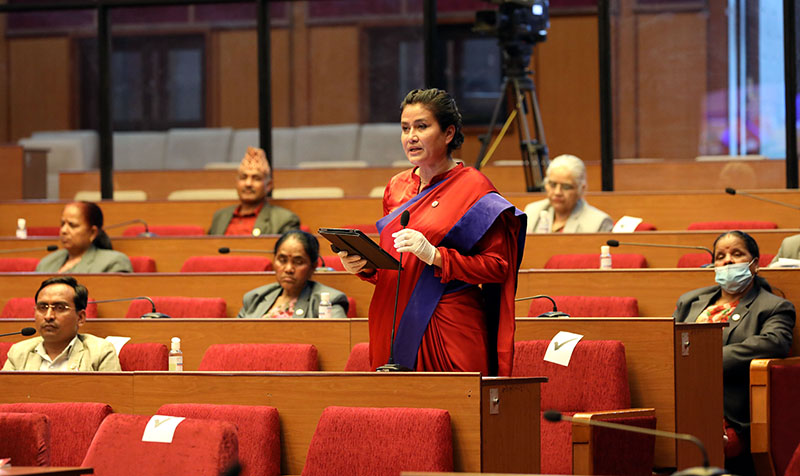NA passes watered-down Special Service Bill
Kathmandu, May 20
The National Assembly today passed the Bill to Amend and Integrate Laws Related to Constitution and Operation of Nepal Special Service, also known as Special Service Bill.
Lawmaker Radhe Shyam Adhikari, who represents the Nepali Congress in the Upper House of the Parliament, told THT that the National Assembly passed the bill after removing some of the provisions of the original bill that gave National Investigation Department authorities broad powers to wiretap and intercept individuals’ digital communications.
Adhikari said the bill passed by the NA allowed NID officials to intercept individuals’ telephonic conversation or digital communication if they had reasons to believe that the persons involved in the communication were indulging in activities detrimental to the country’s sovereignty and national integrity.
The bill prohibits NID officials from using the intercepted data or messages for other purposes.
According to Adhikari, the government officer who would deploy his/her subordinate staff to wiretap or intercept individuals’ communications will have to create an internal memorandum citing valid reasons for their intended activities, which could be later checked by a court of law.
“I think 90 per cent of the bill’s provisions are okay. We have removed provisions of the original bill that intended to give NID officials broad power to intercept individuals’ communications,” he added.
According to Adhikari, if a government employee unlawfully violates individuals’ right to privacy by intercepting their communications, then they could face jail term up to seven years.
Secretary at the NA Rajendra Phuyal said the bill that had originated in the NA was passed today incorporating the changes made by the Legislation Management Committee of the NA and the bill was
later sent to the House of Representatives, the Lower House of the Parliament today itself.
Rights activists had criticised the original bill saying the bill violated citizens’ fundamental right, as it proposed to give powers to National Investigation Department to wiretap phones and to intercept digital communications of individuals.
A version of this article appears in e-paper on May 21, 2020, of The Himalayan Times.






